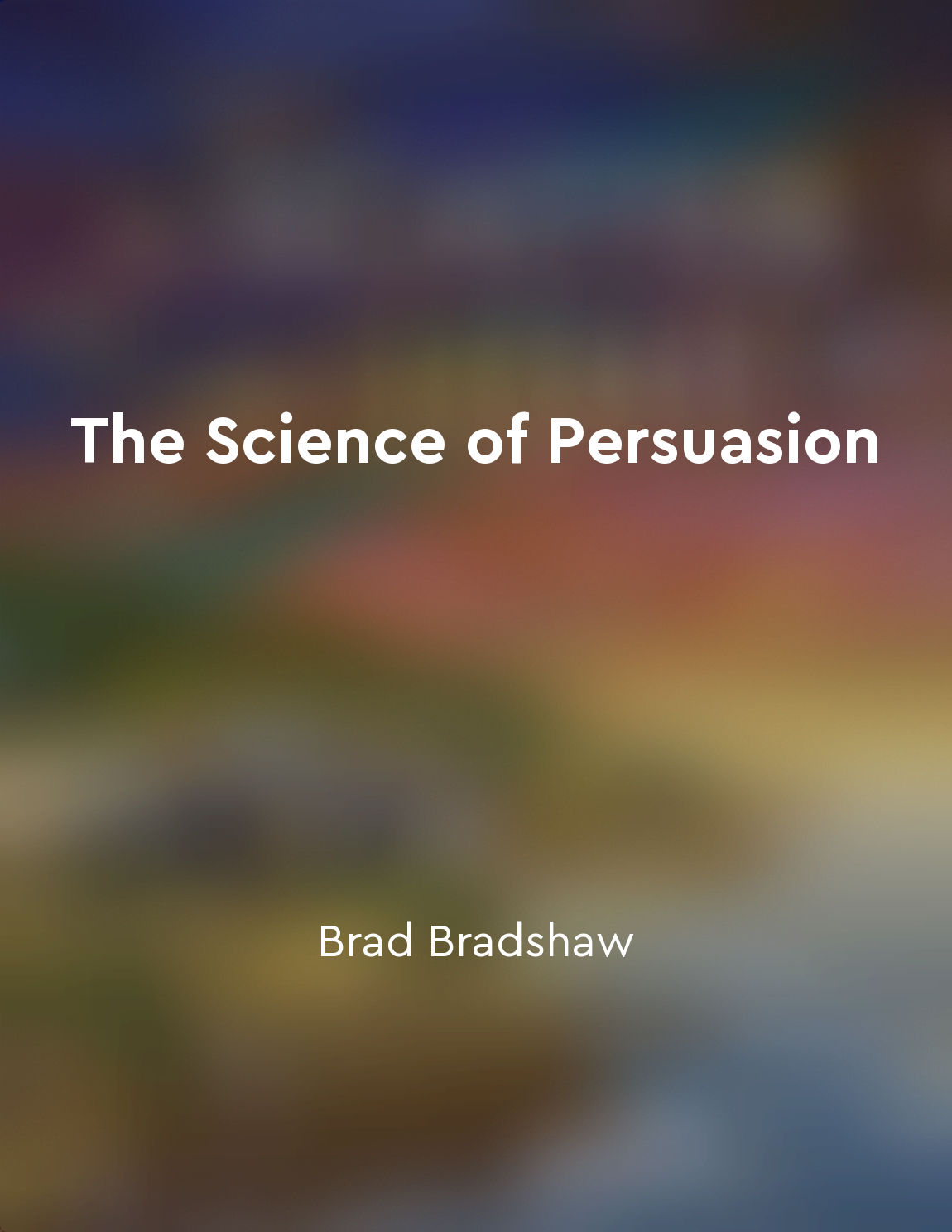Audio available in app
Persuasion is a powerful tool from "summary" of The Science of Persuasion by Brad Bradshaw
Persuasion has long been recognized as a powerful tool in various aspects of life. It is a skill that can be honed and mastered to influence others to think, feel, or act in a certain way. Whether it is in sales, marketing, politics, or everyday interactions, the ability to persuade can make a significant difference in achieving desired outcomes. The concept of persuasion is not just about convincing someone to agree with your point of view. It involves understanding the psychology behind how people make decisions and leveraging that knowledge to effectively communicate your message. By tapping into principles of influence and persuasion, one can increase the likelihood of getting others to say yes to their requests. In his book 'The Science of Persuasion,' Brad Bradshaw delves into the science behind why people say yes and presents key strategies for becoming more persuasive. By exploring the six universal principles of influence - reciprocity, scarcity, authority, consistency, liking, and consensus - Bradshaw provides a framework for understanding how to ethically persuade others. Reciprocity, for example, is the idea that people feel obligated to repay a favor. By first giving something of value to others, you can increase the likelihood that they will reciprocate by agreeing to your requests. Scarcity, on the other hand, capitalizes on people's fear of missing out on opportunities. By highlighting the limited availability of a product or service, you can create a sense of urgency that prompts action. Authority plays a role in persuasion by leveraging the credibility and expertise of individuals or sources. By establishing yourself as a knowledgeable authority figure, you can increase your influence over others. Consistency involves getting people to commit to small actions that align with their beliefs or values, making it more likely that they will agree to larger requests later on. Likability is another important factor in persuasion, as people are more likely to say yes to those they know, like, and trust. By building rapport and establishing a connection with others, you can increase the likelihood of persuading them. Finally, consensus involves showing that others have already agreed to your proposal, making it easier for others to follow suit.- The concept of persuasion as a powerful tool is evident in the strategies and principles outlined in Brad Bradshaw's book. By understanding the psychology behind why people say yes and leveraging universal principles of influence, one can become more effective in persuading others to take desired actions.


